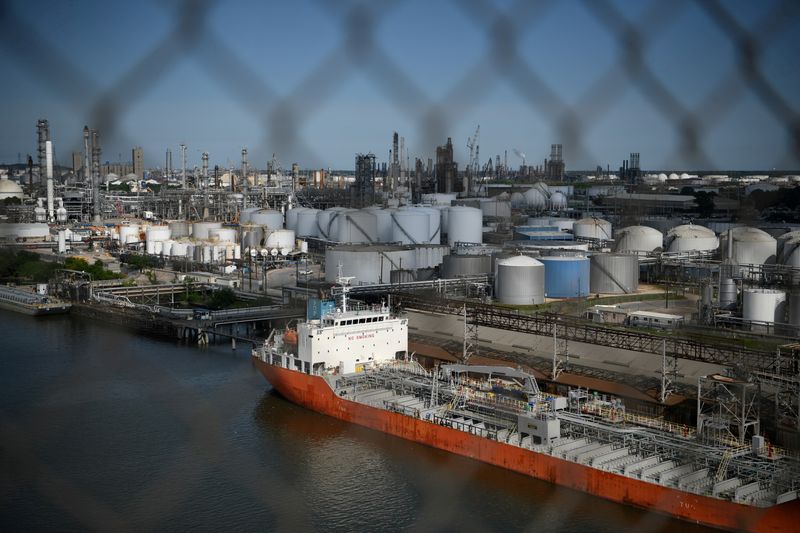HOUSTON (Reuters) - Nine U.S. Gulf Coast refineries exceeded the federal regulatory action level between 2018 and 2020 for pollution from benzene, which causes cancer, according to a study by the Environmental Integrity Project (EIP) released on Thursday.
The nine are among 56 U.S. refineries with high benzene levels, the study said. Sixty-four percent of the 56 refineries are located in the Gulf Coast states of Texas, Louisiana and Mississippi.
EIP spokesperson Tom Pelton said the study was intended to make an impression on the U.S. Environmental Protection Agency (EPA).
“We want the EPA to enforce their own rules,” he said, adding that the EPA’s benzene rules grew out a law suit by EIP.
Representatives for refiners PBF Energy (NYSE:PBF), Phillips 66 (NYSE:PSX) and Chevron Corp (NYSE:CVX) said they have implemented operational changes or removed equipment that was leaking benzene at their refineries in Chalmette, Louisiana; Lake Charles, Louisiana, and Pasadena, Texas, respectively, to move emissions below the EPA action level of 9 micrograms per cubic meter.
Marathon Petroleum (NYSE:MPC), the nation’s largest refiner, and TotalEnergies said Winter Storm Uri in 2021 drove up the average of fenceline benzene levels at their refineries in Texas.
Marathon spokesperson Jamal Kheiry said the company has been reducing benzene pollution apart from atypical events such as Uri which have "negatively impacted annual averages".

Marathon’s Galveston Bay Refinery in Texas City, Texas, and Total’s Port Arthur, Texas, refinery were shut by Uri along with multiple refineries in the state as Uri caused ruptures in natural gas pipelines that supply electrical power plants.
During unplanned shutdowns refineries burn off hydrocarbons in the safety flare system that cannot be processed. Benzene is found in gasoline is a byproduct of the crude oil refining process.